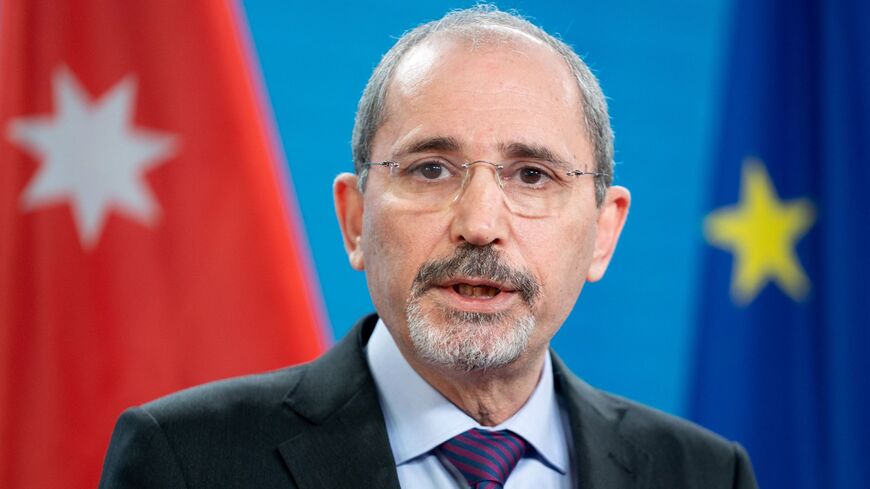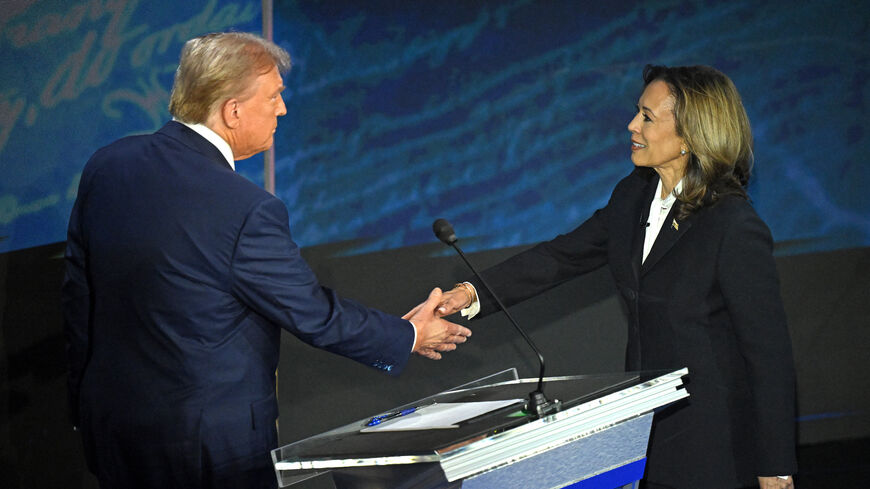Uncertain future: Gaza’s hopes and fears as Trump wins presidency
Palestinians hope for a sign that the US president-elect might shift American policy toward halting the Gaza conflict and addressing their humanitarian crisis, but they are not optimistic.

More than 2 million Palestinians in Gaza are anxiously watching for a signal that the incoming US administration, under President-elect Donald Trump, will prioritize ending the Hamas-Israel war that erupted in October 2023 and addressing Gaza’s humanitarian crisis.
After a year of futile cease-fire proposals under President Joe Biden, many in Gaza hope Trump will put resolving the conflict at the forefront of his agenda. Trump’s previous approach to the Israeli-Palestinian conflict, however, leaves many Palestinians less than optimistic about such a prospect. During his previous term, Trump delivered unprecedented support to Israel.
In December 2017, Trump formally recognized Jerusalem as Israel's capital and announced plans to move the US Embassy to the city from Tel Aviv. Trump also recognized Israeli sovereignty over Syria's Golan Heights, solidifying his pro-Israel stance in ways that raises serious doubt about an impartial US approach this time around.
Humanitarian plight not a priority
The Gaza-based political analyst Mustafa Ibrahim believes that a Trump presidency will likely increase the challenges facing Palestinians, especially in Gaza. He argues that although Trump claimed during the election campaign that he would “stop the war,” his approach to Middle East peace has so far only served to sideline the Palestinian cause.
For example, Trump's signature achievement in the region focused solely on Israel and Arab states. Trump's previous administration brokered the Abraham Accords, establishing diplomatic and trade relations between Israel and the United Arab Emirates and Bahrain, and later Morocco and Sudan, with an eye toward Saudi Arabia also signing on to the agreement.
"Trump isn’t one of the US presidents who cares about the humanitarian situation or the poor," Ibrahim told Al-Monitor. "He is a man of economic deals."
Ibrahim is also skeptical about a two-state solution, which he views as having been reduced to a mere slogan. With Trump in office, he expects the prospects of it to become even more distant. "We can expect further support for the war, pushing the two-state solution even further from reality," he added.
Israel began bombarding Gaza on Oct. 7 as a prelude to a full-scale military offensive after Hamas attacked Israeli communities near the Gaza border, killing 1,200 civilians and soldiers and abducting another 250, including children. According to the Hamas-run Ministry of Health in Gaza, Israeli forces have killed more than 43,469 Palestinians during the conflict.
As the war entered its second year, 1.9 million Palestinians were internally displaced across the enclave. In the first week of the war, more than 1 million Palestinians were instructed to move to southern Gaza “for their safety.” Since then, none of those displaced have been allowed to return to their homes, and southern Gaza has been anything but safe. Israel maintains control over the Netzarim Corridor, running across central Gaza from east to west, prohibiting the movement of Palestinians north and south.
Some 84% of Gaza is under evacuation orders, stemming from 66 forcible relocation directives involving 150 neighborhoods, according to OCHA. The humanitarian situation has deteriorated, with Israel being accused by aid organizations and others of hampering the movement and distribution of humanitarian assistance.
Situation untenable, even for US
Osama Humaid, a Nusairat resident, acknowledged that Americans vote primarily for their own interests, but emphasized to Al-Monitor the broader, global implications of their choice this week.
“The US election affects us as Palestinians,” Humaid said. “The situation in the Middle East is now different than it was when Trump was in power four years ago. The priority now is to stop the war in Gaza and Lebanon.”
He further asserted, “What’s more important for us is that we should be united to face whichever American administration is in power.”
Two separate entities have controlled Gaza and the West Bank since 2007, after Hamas won parliamentary elections in 2006. A year later, Hamas ousted Fatah forces from Gaza. There have been no presidential or parliamentary elections in Gaza or on the West Bank since.
Noor Naim, a Gaza resident currently displaced to Deir al-Balah, is one of the many Palestinians who has little hope that the incoming US president will bring an end to the war, given the already repeated failures to reach a cease-fire agreement and the unwillingness of both Hamas and Israel to make concessions.
“I don’t expect anything good from the new president,” Naim told Al-Monitor. “I’m not hopeful this war will end anytime soon.”
Trump in his first term cut US funding for UNRWA, the United Nations Relief and Works Agency, raising concerns among Palestinians in Gaza today who rely heavily on assistance to meet their basic needs. Earlier this month, the Israeli Knesset passed laws effectively banning UNRWA’s activities in Israel, which would make it almost impossible for the organization to provide assistance to the Palestinians in Gaza and the West Bank.









